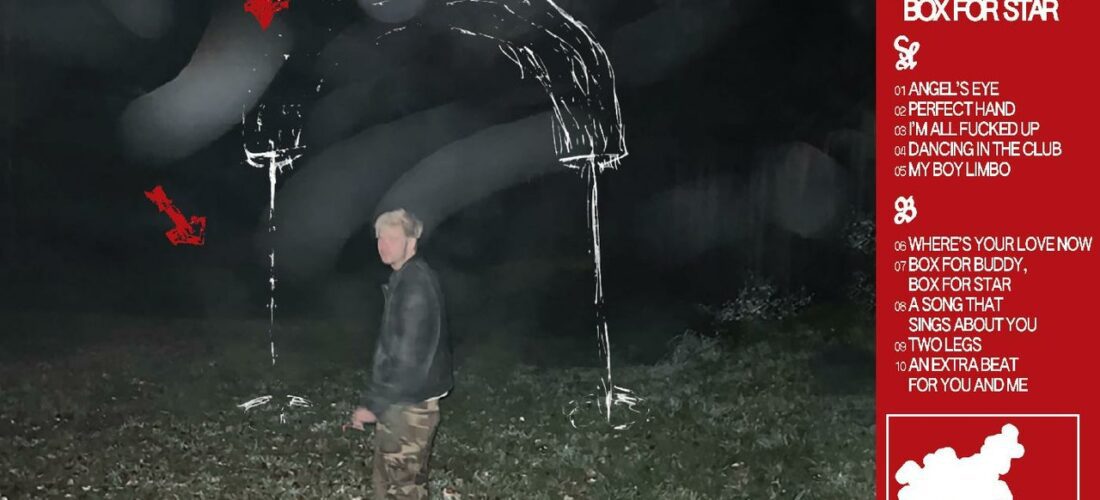To behold Stonehenge is to bear witness to the human capacity for ingenuity. For songwriter Nate Amos, who records as This Is Lorelei, an encounter with the megalithic structure was life-changing: It convinced him to stop smoking weed. The prospect of giving up a habit he’d indulged nearly every day for 15 years was daunting, but Amos decided to channel his subsequent restless energy into songwriting. Maybe it was the lack of weed; maybe Amos was building off the recent success of his various other projects; maybe those Neolithic rocks transmitted something magic to him—regardless, the resulting album, Box for Buddy, Box for Star, is a keenly crafted and wonderfully adventurous set of songs, both earnest and appealingly funny.
Amos had his Stonehenge revelation while on tour with Water From Your Eyes, with whom he makes razor-sharp art-pop; he’s also one-half of the whimsical duo My Idea with Palberta’s Lily Konisberg. But Amos has been releasing solo music as This Is Lorelei for years, treating the alias as a catchall for experiments and unfiltered songwriting, and uploading to Bandcamp dozens of releases dating back a decade. In that way, he shares something of a musical kinship with Alex G, another prolific songwriter who got his start releasing batches of bedroom recordings on Bandcamp, and who—like Amos—combines a love for noise with Americana-ish songwriting. (As for Amos’ literal musical kinship: his father is a veteran bluegrass musician whose influence can be heard in the album’s moments of wistful twang.)
Box for Buddy, Box for Star represents the first time Amos set out to write a proper This Is Lorelei album. Focusing on classic, sturdy songcraft, Amos played, sang, or sampled everything on the record himself, and his appetite is vast; there’s singer-songwriter fare, Auto-Tuned pop, sampled strings, a meditative piano interlude. Whereas Amos’ ear for detail turns Water From Your Eyes’ songs into chunks of delightful chaos, here his flourishes are more approachable, if no less deft: the big classic-rock chords that cut in after the first verse of “A Song That Sings About You,” the twinkly keys on “My Boy Limbo,” the dreamy vocal melody of “Two Legs.”
His plaintive lyrics about romance and heartache have a surprisingly straightforward emotional quality. “Love, if you said you needed two legs/I’d give you mine,” he promises on “Two Legs”; on “A Song That Sings About You,” he mourns, “All these cities look the same without you.” But even in their most sincere moments, his songs are still the identifiable work of a goofball. “Dancing in the Club” features a reference to Steely Dan’s “Babylon Sisters” and a guitar riff that channels “What’s My Age Again.” (Amos claims Blink-182 “saved” him and taught him to value songs that are “fast, catchy and simple.”) The album’s opening moments sound like a curtain rising over a honky-tonk, a steel-guitar-and-strummed-chords soundtrack to a moving duet between two parting lovers—except that’s Amos singing both parts, and it’s actually a song about a cowboy who gets abducted by an angel.
